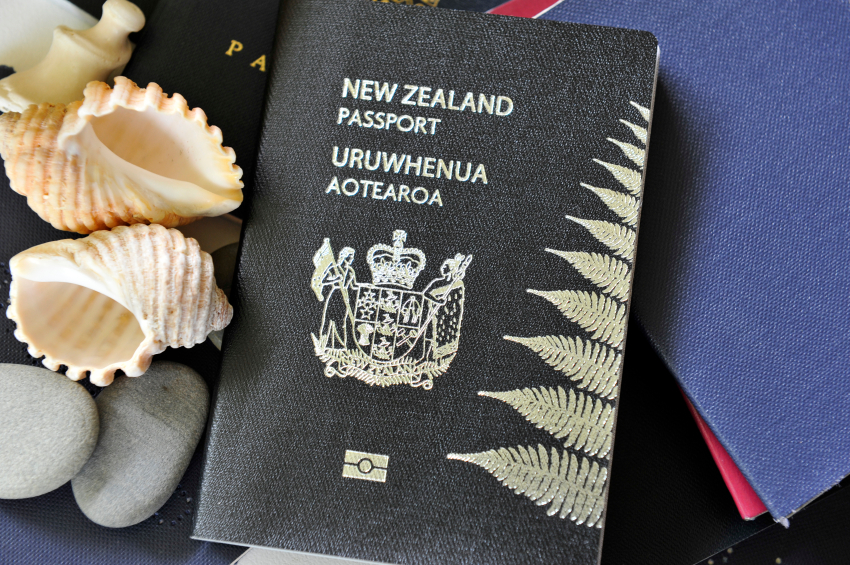Navigating the complexities of visas can be challenging, especially if you hold dual citizenship or have recently changed your passport. Whether you’re planning a scenic adventure across New Zealand or moving for work, understanding how dual citizenship affects your New Zealand visa process is crucial. This guide will walk you through applying for a New Zealand visa with dual citizenship, the advantages it offers, and how to seamlessly transfer your visa to a new passport.
Understanding New Zealand Visas
New Zealand offers a variety of visas tailored to travelers’ needs, including tourist, student, work, and residency visas. Each visa comes with its own set of requirements and benefits, designed to accommodate visitors, international students, and skilled workers. Knowing which visa type suits your purpose of travel is the first step in ensuring a smooth application process.
What is Dual Citizenship?
Dual citizenship, also known as dual nationality, allows an individual to be a legal citizen of two countries simultaneously. This status often comes with numerous perks, such as the ability to live, work, and access services in both countries. However, it also requires a careful balance of responsibilities, such as understanding each country’s laws regarding taxation, military service, and more.
New Zealand Visa with Dual Citizenship
When you hold dual citizenship, applying for a New Zealand visa may involve a few extra considerations compared to single nationality holders. You might have the option to choose which passport to use when applying, which can impact your eligibility for visa waivers, processing times, and fees. It’s crucial to check which of your nationalities offers the most streamlined path. NEW ZEALAND VISA TRANSFER TO NEW PASSPORT
Advantages of Having Dual Citizenship When Applying for a New Zealand Visa
Dual citizenship can open doors and offer a more flexible travel experience. Some of the key benefits include:
- Access to Visa Waivers: Some nationalities may qualify for visa waivers or simpler visa processes with New Zealand.
- Multiple Passport Options: You can select the passport that offers better travel benefits or faster visa approvals.
- Enhanced Mobility: Holding two passports allows you to navigate global borders with greater ease, avoiding restrictions that might affect one nationality.
How to Apply for a New Zealand Visa with Dual Citizenship
Applying for a New Zealand visa as a dual citizen requires careful planning. Here’s a step-by-step guide:
- Choose the Right Passport: Select the passport that provides better visa privileges with New Zealand.
- Check Visa Requirements: Review the visa requirements for the chosen nationality, including documentation and fees.
- Complete the Application: Fill out the visa application form online, ensuring all information matches the selected passport.
- Submit Supporting Documents: Provide the necessary documents, such as proof of funds, return tickets, and a valid passport.
- Pay the Visa Fee: Ensure that the payment is made using the correct currency and method accepted by New Zealand immigration.
- Await Approval: Once submitted, track your application status online or through the relevant consulate.
Common Challenges Faced by Dual Citizens
Dual citizens often encounter specific challenges, including:
- Confusion Over Which Passport to Use: Deciding the best passport can be confusing, especially when both have pros and cons.
- Inconsistent Documentation: Issues can arise if information across your documents does not align perfectly.
- Dual Tax Obligations: Some countries require tax declarations regardless of residence, complicating financial documentation for visas.
Tips to Overcome Challenges for Dual Citizens
To mitigate challenges, consider these tips:
- Maintain Consistent Information: Ensure your names, birth dates, and other key information match across all documents.
- Stay Informed of Visa Laws: Dual citizens must stay updated on the visa regulations of both nationalities to avoid penalties.
- Consult with an Immigration Expert: Professional advice can help clarify complex situations, ensuring a smoother application process.
New Zealand Visa Transfer to New Passport: What You Need to Know
Changing your passport, whether due to expiration, damage, or simply updating to a newer version, requires transferring your existing New Zealand visa. Failing to do so can lead to issues at immigration checkpoints or even denial of entry.
Steps to Transfer a New Zealand Visa to a New Passport
Here’s a simple guide to transferring your New Zealand visa:
- Notify Immigration New Zealand: Inform them about your passport change immediately.
- Submit a Visa Transfer Application: Complete the necessary transfer form available on the New Zealand immigration website.
- Provide Your Old and New Passports: Submit both passports to validate your identity and the visa’s authenticity.
- Pay the Transfer Fee: Pay any applicable fees associated with the transfer process.
- Wait for Confirmation: Keep an eye on your email for confirmation and any further instructions.
Common Mistakes to Avoid During Visa Transfer
Avoid these mistakes to ensure a smooth transfer:
- Ignoring the Transfer Requirement: Always update your visa information when you get a new passport.
- Delays in Notifying Immigration: Notify authorities immediately to prevent travel disruptions.
- Incomplete Documentation: Ensure all forms and fees are correctly submitted to avoid processing delays.
Processing Time and Costs Involved in Visa Transfer
Visa transfer times can vary, typically taking anywhere from a few days to a few weeks. The cost is usually minimal but can vary depending on the type of visa and urgency. It’s best to check the latest fees on the official New Zealand immigration website.
Importance of Keeping Your Visa Information Up-to-Date
Keeping your visa information current is not just about compliance; it’s about safeguarding your travel rights. Outdated visa details can lead to travel restrictions, fines, or even deportation.
Special Cases: Lost or Damaged Passport
If your passport is lost or damaged, contact your consulate and Immigration New Zealand immediately. You will likely need to provide a police report or other proof of loss, along with a new passport application.
How to Contact Immigration New Zealand for Assistance
For assistance, reach out to Immigration New Zealand through their official helpline, website, or nearest consulate. They offer support via email, phone, and online chat for all visa-related inquiries.
Conclusion
Navigating the New Zealand visa process with dual citizenship or transferring your visa to a new passport doesn’t have to be daunting. By understanding the requirements, avoiding common pitfalls, and staying proactive, you can ensure a smooth and stress-free experience.
FAQs
Can I use either passport when applying for a New Zealand visa as a dual citizen?
Yes, you can choose which passport to use, but ensure you meet the visa requirements for that nationality.
How long does it take to transfer a New Zealand visa to a new passport?
The process usually takes a few days to a few weeks, depending on the workload and completeness of your application.
Is there a fee for transferring a New Zealand visa to a new passport?
Yes, a fee is generally required, and it varies based on the type of visa and processing speed.
What happens if I don’t transfer my visa to my new passport?
You may face travel disruptions, including denial of entry into New Zealand.
Can I travel to New Zealand with two passports?
Yes, but you must ensure your visa is valid in the passport you use for entering New Zealand.



